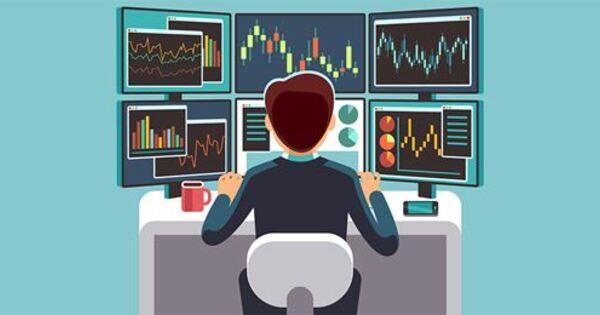Advertisement
OPINIONS
Can everyone be profitable as a day trader?
Day trading may seem like a get-rich-quick scheme, but is it really for everyone?
Disclaimer:
The views and opinions expressed in this article are solely my personal opinion, which I speak from personal experience. This article does not constitute any directionally biased opinion that encourages you whether or not you should consider trading. Seedly, or myself will not be responsible in the event whereby financial losses are incurred through trading as this article is purely opinion-based and free to read. Always remember to perform your due diligence before embarking into anything.
Do note that this is not financial advice. If you are in doubt as to the action you should take, please consult your stock broker or financial advisor.
Seeing 'millionaires' clad in the latest expensive fashionista trend while sitting atop their high-end luxury vehicles and flaunting stacks of cash is becoming an increasingly common facade on social media. Often times, these individuals call themselves 'stock market gurus' and claim that trading derivatives of the financial markets helped them to attain such a high level of financial freedom. While success stories in trading are common, there are also many not-so-successful ones as well that may be less obvious. Do know that there are people who have lost their entire life savings through day trading as well. In this article, I will share my thoughts on whether I think everyone is capable of day trading profitably for a living.
In my personal opinion, trading, just like every other job out there, may not be the most suitable for everyone. It is very risky, offering huge potential rewards but not many people will be able to stomach losses that come by frequently as well.
Unfortunately, in the realm of trading, losing trades are a common part of the game that one must be willing to accept if they aspire to be a trader because there is still no 100% winning strategy. I personally feel that most people will be better-off dollar cost averaging into financial instruments of their choice, and holding them long term because it is a lot more stress-free.
Furthermore, trading goes against our normal human behavior. The moment we see that we have unrealised gains, we naturally feel inclined to close our trade to capture small profits. However, when we have unrealised losses, we feel inclined to hold onto our losing position for dear life, praying for a miracle to happen and refusing to cut losses - only for our losses to get larger and larger yet we still hesitate on whether or not to pull the trigger. What is most likely to happen is that at the end of the day, we end up with losses that exceed the gains we made.
However, for those who are keen to embark on trading as a potential side hustle or even trade full time, here are some non-exhaustive ideas you may consider implementing to increase your odds of success:
1. Start with a demo account
When I first started trading, I do regret not taking things more slowly and starting off with a demo account. Even though barely any of my emotions would have been involved since I was not making or losing any money, following through the process of trading with paper money would have helped me to gain confidence in my strategies and be better able to hold through my trades and execute my plan accordingly rather than being scared and unable to trust my analysis.
2. Discover a trading style that suits your personality and lifestyle
The truth is that most of us are too busy with our daily lives to monitor the markets all the time and wait for the next minute candlestick pattern to form on the charts. Moreover, some of us would feel uneasy if we had any open positions that we have yet to close by the end of the trading day. In any case, it is very important for us to ensure that the timeframe we trade in suits our lifestyle and personality, so trading will more likely work out for us in the long term and we can also feel less anxious.
3. Keep a trading journal
Documenting your trades, whether they are wins or losses, along with your emotions and why you took each trade, may help you to identify common areas you can look to improve upon. You may be able to spot common patterns that will help you refine your strategies to become even more profitable in the long run.
To conclude, I personally feel that trading is not something everyone should blindly jump into. If you would like to consider getting into it, do understand the risks you will be getting yourself into - and if you are currently losing money, it may be wiser to take some time off the markets rather than try to make the money back through revenge trading. Finally, you should be willing to accept losing trades because they do happen to everyone.
From my personal experience, trading may seem like all sunshine and rainbows until you start losing money and dive into a rabbit hole of negative emotions filled with grief, regret, and despair. Nonetheless, to be successful, just like in any other career, you will have to be patient, have a growth mindset, be willing to pivot and change your directional bias, and accept that you may not always be right 100% of the time. Fortunately after I reduced my position size for each trade, I was able to execute my trades with less emotions involved and that was what finally made me profitable.
If you have any personal experience trading, feel free to share your journey in the comments section below, or if you have any personal questions, feel free to drop me a message here!
Comments
818
7
ABOUT ME
818
7
Advertisement
No comments yet.
Be the first to share your thoughts!
